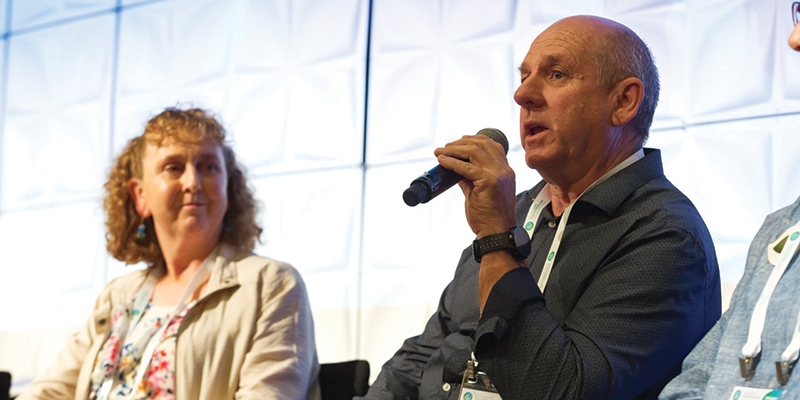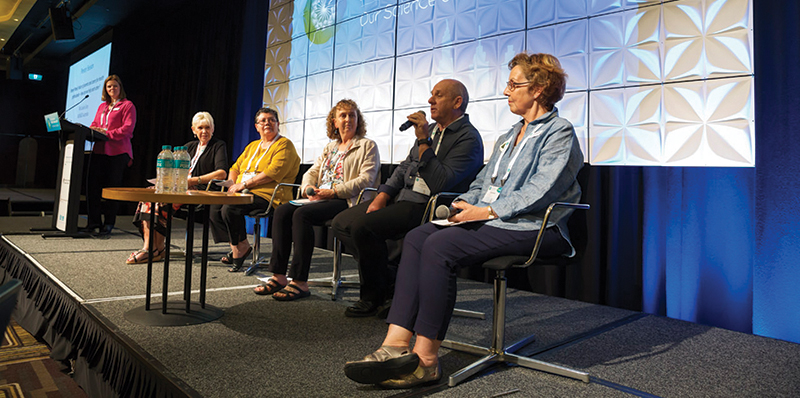First published Wednesday 10 July 2019.
Parents helping to put FASD into perspective

For Neil Reynolds, foster dad to siblings aged seven and 10 years, who both have FASD, the 2nd Australasian FASD Conference was full of opportunities that only reinforced his positive outlook.
Well researched and with seven years’ experience parenting children with the condition, he and his wife know that a consistent, appropriate approach helps each child to maximise their achievements.
“That’s the message we tried to convey through the conference: that there is hope for these kids,” said Neil.
“There’s a big difference that can be made – you get massive rewards from them and they can achieve amazing things. You just need guidance and support because they are not like anybody else in the community. You’ve just got to do it a little bit differently and if you stick at it, you get great rewards,” he said.
Testament to this approach, Neil’s foster daughter is now completing Year 5, is able to read and enjoys school. She is a ‘gun’ at computer games and has become highly engaged in maths study, since it has been delivered via an iPad.
“She is certainly achieving far greater than the expectation was at the beginning of her schooling,”he said.
“Socially she is well-liked and accepted, and she is positive about the learning process, even though not achieving as highly as the other kids."
Neil’s seven-year-old foster son, who is more seriously affected, is now satisfactorily managing Year 2, following years of consistent, therapeutic, ‘good old-fashioned’ parenting.
“The reality with these kids is you get out what you put in and if you put in a whole lot, you get a whole lot back,” Neil said.
“But unlike a mainstream child where it just happens, with these kids you’ve got to just keep pushing and encouraging until you get what you want,” he said.
The conference enabled Neil to share his positive message with other parents, dispelling what he says is general negativity about the outlook for these kids. Added to that, listening to the successes researchers and clinicians were having was highly affirming for all.
“It’s great for parents to be able to sit down and hear of clinicians having success with some of their clients and some of the projects they have put in place,” he said.
“There are researchers finding things out about dealing with behaviours and it’s good they can pass this on to the parents, so they can put it into place.
“It’s also good to speak to people who have done those things and had some success – the effort in consistently following these guidelines is certainly worthwhile.”
Neil said parents and carers felt valued in being able to share their insights and perspectives with researchers and clinicians.
“There are so many different aspects of FASD,” he said.
“It was a fantastic opportunity. Often you have clinicians together, researchers together or parents and carers together, but it is rare you get them all in the one place – and so many of them, with so much passion and knowledge about the subject.”
